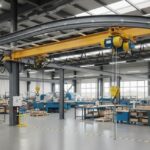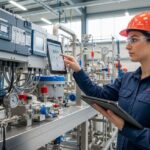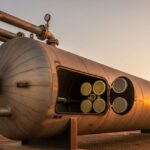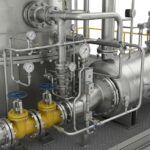Introduction
Polyethylene is one of the most widely used plastics in the world, found in everything from plastic bags to containers and piping systems. This material comes in various forms, including low-density polyethylene (LDPE), medium-density polyethylene (MDPE), and high-density polyethylene (HDPE). Each form has distinct production methods, properties, and applications, making it essential to understand the technologies behind these processes. The production processes are licensed by major companies, often referred to as licensors. These licensors develop the technology and provide licensing to companies for producing polyethylene through specialized processes.
In this article, we will explore the different types of polyethylene, the companies that license the processes for producing polyethylene, and the technologies they offer.
- Introduction
- Quiz on Licensor Companies for Polyethylene Process
- What is Polyethylene?
- The Polyethylene Production Process
- Low-Density Polyethylene (LDPE)
- Medium-Density Polyethylene (MDPE)
- High-Density Polyethylene (HDPE)
- Table: Comparison of Polyethylene Types and Processes
- Why Licensor Companies Are Important in Polyethylene Production
- The Future of Polyethylene Production
- Conclusion
- FAQs
- Check 75+ Free Courses on EPCLAND
- Popular courses by EPCLAND on Piping Engineering:
- Top Short Courses on valves by EPCLAND:
- Important Links
Quiz on Licensor Companies for Polyethylene Process
1. Which of the following companies is a key licensor for LDPE production?
Choose the correct answer:
Correct option: C) LyondellBasell. Explanation: LyondellBasell is one of the major licensors of LDPE technology. They offer Lupotech T and A technologies used for LDPE production via high-pressure polymerization processes such as tubular or autoclave reactors.
2. What processes are typically used to produce MDPE?
Choose the correct answer:
Correct option: A) Gas-phase and slurry. Explanation: MDPE is typically produced using slurry and gas-phase processes. It is closely related to HDPE production and shares similar polymerization technologies. Example licensors include INEOS Technologies and LyondellBasell.
3. Which company licenses the UNIPOL PE process for HDPE production?
Choose the correct answer:
Correct option: B) Univation Technologies. Explanation: Univation Technologies is the licensor of the UNIPOL PE process, which is widely used for HDPE production. This process is recognized for its efficient gas-phase polymerization capabilities.
4. Which technology does Chevron Phillips license for MDPE and HDPE production?
Choose the correct answer:
Correct option: A) MarTECH. Explanation: Chevron Phillips licenses the MarTECH process for both MDPE and HDPE production. This technology is known for its use in gas-phase and slurry polymerization processes, making it suitable for polyethylene manufacturing.
Complete Course on Piping Engineering
Basics, Codes & Standards, Layout, Materials & Stress Analysis
What is Polyethylene?
Polyethylene is a polymer made from the polymerization of ethylene, a gas obtained from natural gas or petroleum. It is characterized by its lightweight, durability, flexibility, and resistance to moisture and chemicals. Polyethylene is available in several grades, each with unique properties and uses. The three primary types are:
- Low-Density Polyethylene (LDPE)
- Medium-Density Polyethylene (MDPE)
- High-Density Polyethylene (HDPE)
The Polyethylene Production Process
Polyethylene production involves various polymerization processes, and the technology for each is developed by specialized licensor companies. These companies offer proprietary technology to manufacturers, allowing them to operate efficiently and produce high-quality polyethylene. The key processes include:
- LDPE Production: High-pressure polymerization using tubular or autoclave reactors.
- MDPE Production: Produced using slurry or gas-phase polymerization processes.
- HDPE Production: Produced through gas-phase, slurry, or solution polymerization processes.
Low-Density Polyethylene (LDPE)
LDPE is a highly flexible and durable type of polyethylene used primarily in films, plastic bags, and packaging materials. It is produced through high-pressure polymerization, which makes it highly adaptable and suitable for products requiring toughness and flexibility.
LDPE Production Process
LDPE is produced through two primary types of reactors:
- Tubular Reactor: This process uses long, narrow tubes to maintain high pressure during the polymerization of ethylene.
- Autoclave Reactor: This process uses a large, high-pressure chamber to polymerize the ethylene.
LDPE Licensor Companies
Some of the major companies that license LDPE production technology include:
- LyondellBasell (Lupotech T and A technologies): LyondellBasell offers the Lupotech technology for LDPE production, which is highly efficient and widely used globally.
- INEOS Technologies (Innovene LD): INEOS provides Innovene LD technology for high-performance LDPE production.
- ExxonMobil: ExxonMobil is another major player in the LDPE licensing market, offering robust solutions for LDPE production.
- Mitsui Chemicals: Mitsui Chemicals provides advanced LDPE production technology to a variety of global manufacturers.
Medium-Density Polyethylene (MDPE)
MDPE falls between LDPE and HDPE in terms of density and strength. It is commonly used in products like gas pipes, carrier bags, and shrink film. MDPE shares some similarities with HDPE, but its production processes and applications differ slightly.
MDPE Production Process
MDPE is produced using both slurry and gas-phase polymerization methods. The slurry process uses a hydrocarbon solvent, while the gas-phase method suspends the polymer in a fluidized bed of ethylene gas.
MDPE Licensor Companies
Major companies that license MDPE production technology include:
- INEOS Technologies (Innovene S): Innovene S technology is designed for the production of both MDPE and HDPE using slurry and gas-phase methods.
- LyondellBasell (Hostalen): Hostalen technology is known for its robust performance in producing MDPE with high efficiency.
- Chevron Phillips Chemical Company (MarTECH): Chevron Phillips offers MarTECH technology, which is used in producing high-performance MDPE.
- Univation Technologies (UNIPOL PE): Univation provides the widely-used UNIPOL PE technology, which supports the production of both MDPE and HDPE.
High-Density Polyethylene (HDPE)
HDPE is known for its strength and rigidity, making it ideal for applications like containers, pipes, and geomembranes. It is produced using various polymerization processes, including gas-phase, slurry, and solution methods.
HDPE Production Process
HDPE can be produced through multiple polymerization methods:
- Gas-Phase Polymerization: Ethylene gas is polymerized in a fluidized bed reactor.
- Slurry Polymerization: Ethylene is polymerized in a hydrocarbon solvent.
- Solution Polymerization: Ethylene is dissolved in a solvent and polymerized in a continuous reactor.
HDPE Licensor Companies
The major companies that license HDPE production technology include:
- INEOS Technologies (Innovene S, G): INEOS offers Innovene technology for both gas-phase and slurry processes to produce HDPE.
- LyondellBasell (Hostalen ACP): Hostalen ACP technology is known for producing high-quality HDPE.
- Chevron Phillips (MarTECH): Chevron Phillips’ MarTECH technology is widely used in HDPE production.
- Mitsui Chemicals (CX Process): Mitsui Chemicals offers the CX process, a highly advanced solution for HDPE production.
- Univation Technologies, LLC (UNIPOL PE): UNIPOL PE is a flexible technology for producing both HDPE and MDPE through gas-phase polymerization.
Table: Comparison of Polyethylene Types and Processes
| Polyethylene Type | Production Process | Common Applications | Major Licensor Companies |
|---|---|---|---|
| LDPE | High-pressure (Tubular/Autoclave) | Films, packaging materials, plastic bags | LyondellBasell, INEOS, ExxonMobil, Mitsui |
| MDPE | Slurry, Gas-phase | Gas pipes, carrier bags, shrink film | INEOS, LyondellBasell, Chevron Phillips, Univation |
| HDPE | Gas-phase, Slurry, Solution | Containers, pipes, geomembranes | INEOS, LyondellBasell, Chevron Phillips, Mitsui, Univation |
Why Licensor Companies Are Important in Polyethylene Production
Licensor companies are critical in the production of polyethylene because they provide the specialized technology needed to produce the material at an industrial scale. These companies invest heavily in research and development to optimize processes, reduce costs, and improve the quality of polyethylene products. Manufacturers license these technologies to ensure efficient production while maintaining the highest standards of quality and safety.
Benefits of Licensing Technology from Major Companies
- High Efficiency: Licensed technology is optimized for efficient production, reducing energy consumption and costs.
- Quality Assurance: Licensors provide proven technology, ensuring that the end product meets industry standards.
- Technical Support: Licensor companies offer extensive technical support to manufacturers, helping them troubleshoot issues and optimize processes.
- Regulatory Compliance: Licensed processes are often designed to comply with environmental and safety regulations, reducing the risk of non-compliance.
The Future of Polyethylene Production
The polyethylene industry is continually evolving, with new technologies emerging to meet the growing demand for sustainable and high-performance materials. Innovations in catalyst development, process optimization, and recycling technologies are expected to shape the future of polyethylene production.
Key Trends in Polyethylene Production
- Sustainability Initiatives: Companies are investing in technologies that reduce the environmental impact of polyethylene production, including recycling processes and bio-based polymers.
- Advanced Catalysts: The development of more efficient catalysts is improving the polymerization process, leading to higher yields and better material properties.
- Digitalization: The integration of digital technologies, such as process automation and artificial intelligence, is enhancing the efficiency of polyethylene plants.
Conclusion
Polyethylene production is a complex process that requires advanced technology and expertise. Licensor companies play a crucial role in providing the technology needed to produce LDPE, MDPE, and HDPE at an industrial scale. Companies like LyondellBasell, INEOS, Chevron Phillips, and Univation Technologies are at the forefront of this industry, offering cutting-edge solutions that drive efficiency and quality in polyethylene production.
By understanding the different types of polyethylene and the technologies used to produce them, chemical engineers and manufacturers can make informed decisions when selecting the right technology for their needs.
FAQs
- What is the role of a licensor company in polyethylene production?
- Licensor companies provide the specialized technology and support needed to produce polyethylene on an industrial scale.
- What are the main types of polyethylene?
- The main types of polyethylene are low-density polyethylene (LDPE), medium-density polyethylene (MDPE), and high-density polyethylene (HDPE).
- Which companies are the major licensors for polyethylene production?
- Major licensors include LyondellBasell, INEOS Technologies, Chevron Phillips, ExxonMobil, and Univation Technologies.
- What is the difference between LDPE and HDPE?
- LDPE is flexible and used primarily in films and packaging, while HDPE is more rigid and used in containers, pipes, and geomembranes.
- What are the key trends shaping the future of polyethylene production?
- Key trends include sustainability initiatives, advanced catalysts, and digitalization in plant operations.
Check 75+ Free Courses on EPCLAND
Popular courses by EPCLAND on Piping Engineering:
- Complete Course on Piping Engineering
- Piping Layout Engineering
- Piping Material Engineering
- Piping Stress Analysis
- All Courses Published on EPCLAND Platform
Top Short Courses on valves by EPCLAND:
- 14 Components of API 6A Gate Valve
- 14 Components of API 6D Valves
- 58 Components of API 602 Gate Valves
- 17 Components of API 600 Gate Valves
- Valve Material Specifications (VMS) – Comprehensive Guide
Important Links
- Video Series on Comparison of Piping Items: Check here
- Join Biggest Telegram Community of Piping Engineering: Click Here
- Subscribe YouTube channel: Click Here
- Check All Published courses: Click Here
- Read published technical Articles: Click Here
#Epcland #Pipingcourses #PIpingengineering #pipingonlinecourses #atulsingla









